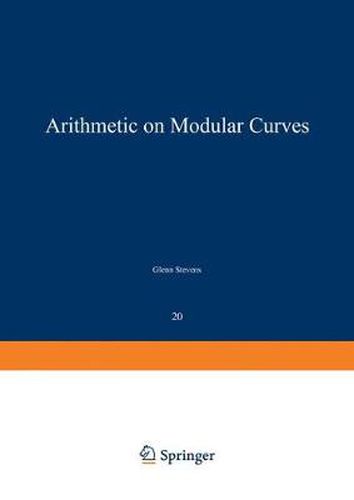Readings Newsletter
Become a Readings Member to make your shopping experience even easier.
Sign in or sign up for free!
You’re not far away from qualifying for FREE standard shipping within Australia
You’ve qualified for FREE standard shipping within Australia
The cart is loading…






This title is printed to order. This book may have been self-published. If so, we cannot guarantee the quality of the content. In the main most books will have gone through the editing process however some may not. We therefore suggest that you be aware of this before ordering this book. If in doubt check either the author or publisher’s details as we are unable to accept any returns unless they are faulty. Please contact us if you have any questions.
One of the most intriguing problems of modern number theory is to relate the arithmetic of abelian varieties to the special values of associated L-functions. A very precise conjecture has been formulated for elliptic curves by Birc~ and Swinnerton-Dyer and generalized to abelian varieties by Tate. The numerical evidence is quite encouraging. A weakened form of the conjectures has been verified for CM elliptic curves by Coates and Wiles, and recently strengthened by K. Rubin. But a general proof of the conjectures seems still to be a long way off. A few years ago, B. Mazur [26] proved a weak analog of these c- jectures. Let N be prime, and be a weight two newform for r 0 (N) . For a primitive Dirichlet character X of conductor prime to N, let i\ f (X) denote the algebraic part of L (f , X, 1) (see below). Mazur showed in [26] that the residue class of Af (X) modulo the Eisenstein ideal gives information about the arithmetic of Xo (N). There are two aspects to his work: congruence formulae for the values Af(X) , and a descent argument. Mazur’s congruence formulae were extended to r 1 (N), N prime, by S. Kamienny and the author [17], and in a paper which will appear shortly, Kamienny has generalized the descent argument to this case.
$9.00 standard shipping within Australia
FREE standard shipping within Australia for orders over $100.00
Express & International shipping calculated at checkout
Stock availability can be subject to change without notice. We recommend calling the shop or contacting our online team to check availability of low stock items. Please see our Shopping Online page for more details.
This title is printed to order. This book may have been self-published. If so, we cannot guarantee the quality of the content. In the main most books will have gone through the editing process however some may not. We therefore suggest that you be aware of this before ordering this book. If in doubt check either the author or publisher’s details as we are unable to accept any returns unless they are faulty. Please contact us if you have any questions.
One of the most intriguing problems of modern number theory is to relate the arithmetic of abelian varieties to the special values of associated L-functions. A very precise conjecture has been formulated for elliptic curves by Birc~ and Swinnerton-Dyer and generalized to abelian varieties by Tate. The numerical evidence is quite encouraging. A weakened form of the conjectures has been verified for CM elliptic curves by Coates and Wiles, and recently strengthened by K. Rubin. But a general proof of the conjectures seems still to be a long way off. A few years ago, B. Mazur [26] proved a weak analog of these c- jectures. Let N be prime, and be a weight two newform for r 0 (N) . For a primitive Dirichlet character X of conductor prime to N, let i\ f (X) denote the algebraic part of L (f , X, 1) (see below). Mazur showed in [26] that the residue class of Af (X) modulo the Eisenstein ideal gives information about the arithmetic of Xo (N). There are two aspects to his work: congruence formulae for the values Af(X) , and a descent argument. Mazur’s congruence formulae were extended to r 1 (N), N prime, by S. Kamienny and the author [17], and in a paper which will appear shortly, Kamienny has generalized the descent argument to this case.